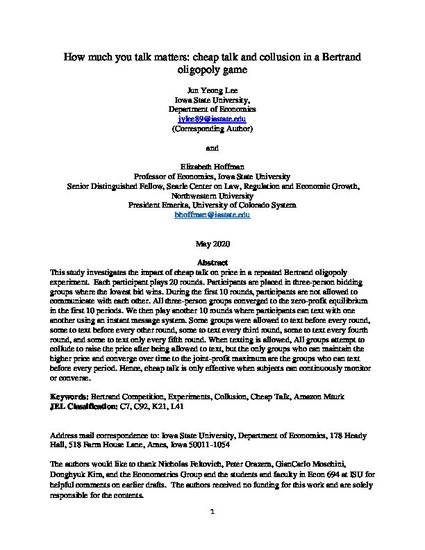
This study investigates the impact of cheap talk on price in a repeated Bertrand oligopoly experiment. Each participant plays 20 rounds. Participants are placed in three-person bidding groups where the lowest bid wins. During the first 10 rounds, participants are not allowed to communicate with each other. All three-person groups converged to the zero-profit equilibrium in the first 10 periods. We then play another 10 rounds where participants can text with one another using an instant message system. Some groups were allowed to text before every round, some to text before every other round, some to text every third round, some to text every fourth round, and some to text only every fifth round. When texting is allowed, All groups attempt to collude to raise the price after being allowed to text, but the only groups who can maintain the higher price and converge over time to the joint-profit maximum are the groups who can text before every period. Hence, cheap talk is only effective when subjects can continuously monitor or converse.
Original Release Date: May 2020
Available at: http://works.bepress.com/elizabeth-hoffman/35/
